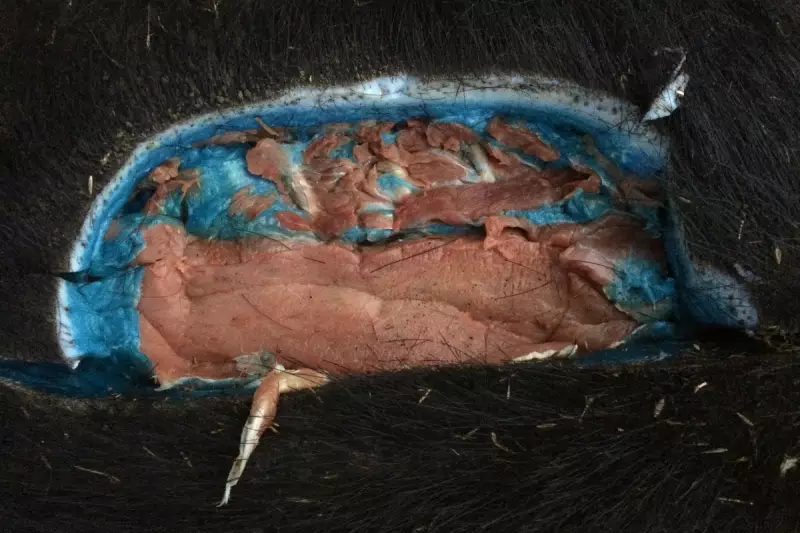
In a startling discovery that has baffled scientists and locals alike, wild pigs with distinctly blue-tinged flesh have been spotted roaming parts of California. This peculiar phenomenon has sparked widespread curiosity and raised questions about potential environmental factors at play.
The Unusual Discovery
Reports first emerged from rural areas where hunters and residents noticed the abnormal pigmentation in feral swine carcasses. Unlike their normally pink-fleshed counterparts, these animals exhibited a striking bluish hue in their muscle tissue, particularly noticeable after butchering.
Scientific Investigation Underway
Wildlife experts and biologists have launched investigations to determine the cause of this bizarre coloration. Several theories are being considered:
- Environmental contaminants: Potential exposure to heavy metals or industrial pollutants
- Dietary factors: Consumption of specific plants or minerals altering pigmentation
- Genetic mutation: Possible rare genetic variation within the local pig population
Public Health Concerns
While the phenomenon is scientifically fascinating, authorities have cautioned against consuming meat from affected animals until thorough safety assessments are completed. The California Department of Fish and Wildlife has issued advisories to hunters in the region.
Historical Context
This isn't the first instance of unusually colored wildlife being reported. Similar cases have been documented worldwide, often serving as important indicators of environmental changes. However, the scale and consistency of this occurrence make it particularly noteworthy for researchers.
As investigations continue, scientists hope this strange case will provide valuable insights into animal biology and environmental interactions in California's ecosystems.





